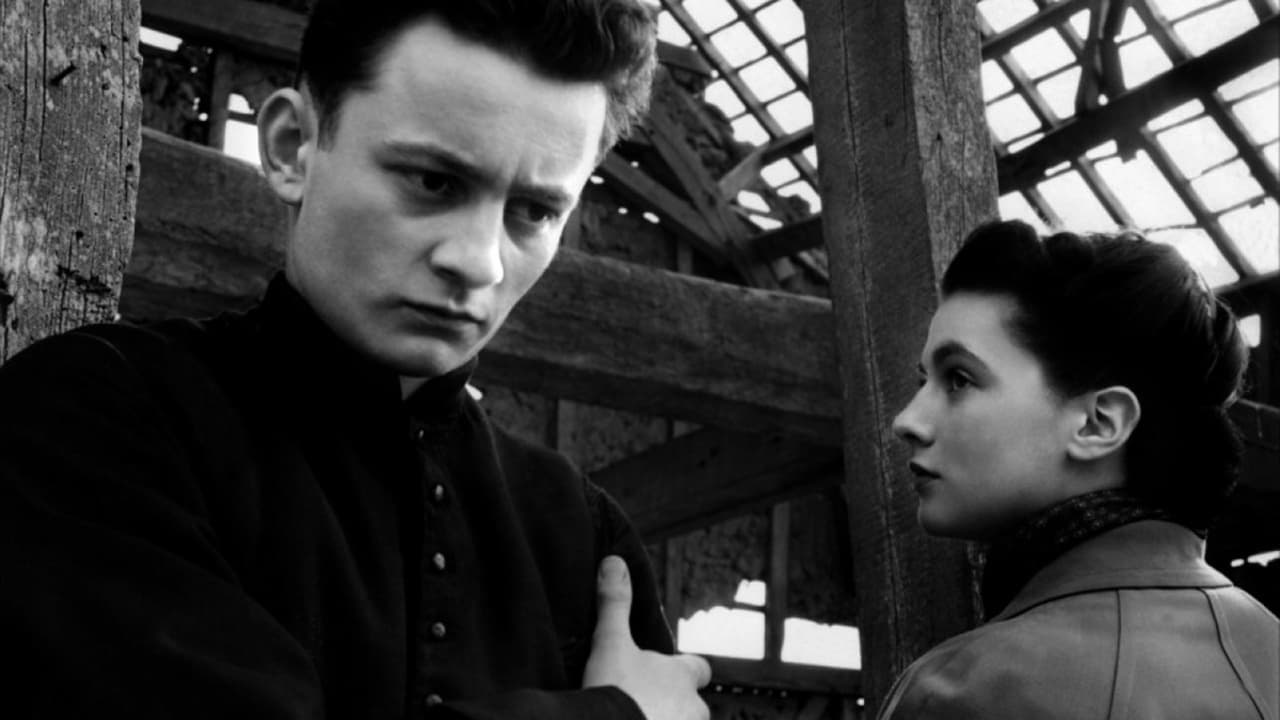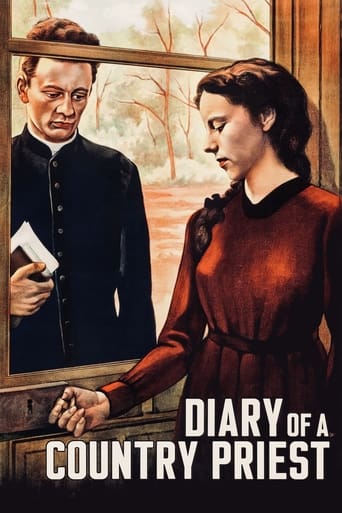



Surprisingly incoherent and boring
Really Surprised!
It really made me laugh, but for some moments I was tearing up because I could relate so much.
View MoreWhile it is a pity that the story wasn't told with more visual finesse, this is trivial compared to our real-world problems. It takes a good movie to put that into perspective.
View MoreThis is not a movie. It's God itself in every frame from beginning to end. Bresson did the impossible. To "see it", it takes the eyes of the heart and the light within us.In cinema there are 3 things:1- Bresson: He is everything and above all things; "He" is like Fight Club, you don't talk about it.2 - The best movie ever made: Reservoir Dogs.3 - The Only Movie that exists: Blade Runner.Please, talk about the "normal" movies and choose this and that and say "Wow". Thank You.
View MoreEven though I'm not a religious person at all, I'm still often quite fond or religious themed movies. They have a certain atmosphere and it often handles some intriguing themes, such as complete devotion, not just to the Lord but also to a certain cause.Of course this movie is not just for everyone. I mean, hey, first of it all, it's French! It's shot completely in black & white and its slowly moving. But I will say that the it's never really a too hard of a movie to watch. This is mostly because the movie mostly keeps things real and doesn't ever exaggerate or gets overly complicated with any of its themes or emotions. In a way you could call this movie one that is being like a random slice of life, like so many movies used to be made of later on, in mostly France and Italy.Even though the movie its slow, it still at all times remains an intriguing one to watch, which is all due to the way it got shot and directed by Robert Bresson. He lets the actors really tell the story and at the same time also make things work out all the better with the help of its visuals. It's a really beautifully shot movie, with some nice cinematography by Léonce-Henri Burel, who had basically been in the industry since the beginning. Obviously a guy with lots of experience with black & white cinematography. I also don't think he ever did a movie in color, not even during the later years of his career.I like how the characters within the story get slowly developed and fleshed out and also how they all interact with each other. It's part of the reason why this feels like a realistic movie and story and not like one that tries to manipulate your feelings and emotions, or one that feels like it got based on a novel, while in fact it actually did got based on a novel, by Georges Bernanos.Also of its acting feels very natural, which makes its characters work out, which in return also make its story and just overall movie work out. It's one of those movies that also deliberately used actors without any or too much experience. This can at times actually work against a movie but in this case it really worked out brilliantly.No, I will admit that the movie its pace isn't always pleasant and the movie isn't always interesting to watch but overall it all, surprisingly, is still well worth it by the end.8/10http://bobafett1138.blogspot.com/
View MoreIn one word: excruciating. I was advised to read some articles about this film's philosophical meanings afterward, but, having sat through the movie's interminable 115 minutes and being slowly crushed beneath its bloated symbolism and lava-flowing oppressiveness, it seemed better to just report my reactions to the movie. After all, who goes to see a movie with a syllabus in hand? And this flick was dismal. Lead actor Claude Laydu, from the film's opening to its end, wears the same wearying and annoying mask of agony as to be practically indistinguishable from the film's eternal, dreary voice-over. Filming one over the other might have worked better than subjecting an audience to both, as they basically say the same thing: The priest of Ambricourt is a wretched human being. The story, about a persecuted priest who tries to help out a troubled rich family, does nothing toward making its characters remotely interesting or sympathetic, as the family are a bunch of unpleasant weirdos, and the priest, himself, comes across as a nosy pest. The last 30 minutes suggests some breath-taking message about grace and one man's suffering equaling that of others, but due to all the indulgent close-ups of a suffering Laydu and the vague subtext in Robert Bresson's script, all I felt was, Finally, it's over, let's have some ice-cream. Interesting for fans of Bresson fanatic Paul Schrader, just to see how many elements of character and setting Schrader carried into in his own scripts and movies, especially "Taxidriver", "Raging Bull" and "Light Sleeper".
View MoreOne reviewer has mentioned the importance of the fact that the priest exists mainly on bread and wine. This seems to me to point to the fundamental theme in the movie. Because the movie doesn't simply portray the isolation of the priest from the community but also their isolation from him. In feeling isolated from him they resent him and treat him with some unkindness.What is the priest's disease? Surely, it is not so much cancer as his own purity. He is too much a priest and too little a human being. He sees his suffering as being godliness. As though it is some necessary part of being a priest. He chooses to suffer for the sake of his religion, whereas Christ endured his suffering because he had no choice.The priest hardly ever smiles. He looks out upon sinful humanity from the purity of his little room at the top and there is a great gulf between himself and them. He cannot relate to them nor they to him. In practicing his religion with youthful earnestness he overlooks one important fact. Jesus was above all a human being. He surrounded himself with humans, ate and drank with them, laughed and wept with them. He certainly knew that they sinned, but he also understood the reasons for it, and saw his role as that of the shepherd who cajoles his flock along the correct path, rather than that of someone who draws lines in the sand and says "This you must not cross". Above all, Jesus had compassion, a quality not so much lacking as suppressed by the young priest. In doing so he is unable to offer the daughter of the manor the love (NOT romantic love) which she yearns for.
View More